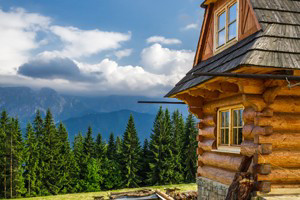- Mission Mountains, within Flathead National Forest, are designated a Wilderness Area
- This scenic forest can be reached via US Highway 93 on forest roads
- Catch some cutthroat trout in Turquoise or Glacier Lake
- Hike or backpack on 45 miles of maintained trails
- Spot some black bears, grizzlies, elk and deer
Overview
The Mission Mountains are located in the Flathead National Forest in Montana, designated a Wilderness Area and encompassing almost 74,000 acres. They offer scenic beauty with their rugged terrain, glaciers, alpine lakes and sparkling streams.
Location
The Mission Mountains are in northwest Montana, about midway between Kalispell and Missoula. All parts of the wilderness area can be reached via US Highway 93 on forest roads.
Seasons
The Mission Mountains are accessible the year round.
Activities
- Wildlife Watching
There is abundant wildlife in the area, including black and grizzly bears, elk, deer, mountain goats and mountain lions. You will also see some gray wolves and other furry critters. With 50 species of birds, you can spot all types of feathered creatures, including bald eagles. - Fishing
Although the habitat is fragile around the lakes, they are great places to fish in the Mission Mountain Range. Catch some cutthroat trout in Turquoise or Glacier Lake. - Hiking
With limited trails through these mountains, you will still find 45 miles of hiking on maintained trails. And you’ll have these trails free and unencumbered. No motorized vehicles or mountain bikes are allowed. If you plan on hiking across the Mission Divide, be aware that the trails are very steep and hard to follow. They’re suitable only for the more experienced. - Hunting
You’ll find hunting is allowed in season within the wilderness areas in this national forest.
Additional Info
The Mission Mountains, Montana are commonly known as the American Alps, with elevations well above 9,000 feet. Waterfalls are abundant, with the best known being the 1,000-foot plunges of Elizabeth and Mission Falls.
Every summer, the grizzly bears gather around McDonald Peak to feast on swarms of ladybugs and moths. This area is closed to the public from mid-July to October so as not to displace these bears.






